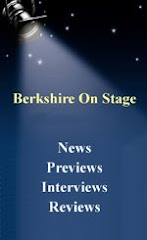

Hold on to those old letters! A British Library curator is dusting off proof that that most solemn and austere of the great poets was a great friend and supporter of lesbian writers. When he was a publisher at Faber & Faber, he risked everything to support the release of The Nightwood, one of the first and most important lesbian novels of modern times.
The 1936 book, by Djuna Barnes, was set in the 1920s and depicted the tumultuous relationship between its two female protagonists, despite its rejection by other publishers on the grounds of obscenity. Eliot was such a fan of Barnes's writing that he said he found it difficult not to imitate her style after reading it.
 A drawing by Barnes from Ryder. Many of Ryder's illustrations originally were censored by Barnes's editors and publishers due to their violent and sexual content. The 1990 edition of Ryder restores the novel to its original form by including all of Barnes's drawings. See Barnes's Forward to Ryder to read her reaction to this censorship.
A drawing by Barnes from Ryder. Many of Ryder's illustrations originally were censored by Barnes's editors and publishers due to their violent and sexual content. The 1990 edition of Ryder restores the novel to its original form by including all of Barnes's drawings. See Barnes's Forward to Ryder to read her reaction to this censorship.To avoid falling foul of strict censorship laws, Eliot changed some of the novel's references to lesbian sex as well as to religion. He also deleted illustrations to her later books, such as Ryder, and these illustrations have only been restored in contemporary editions. He felt unsure about it too. He confessed to Geoffrey Faber, founder of the publishing house, that he believed himself an unreliable judge when it came to matters of censorship. "I am perpetually being shocked by what doesn't shock other people and not being shocked [by what does]."
"Of course I think of the past and of Paris, what else is there to remember?" -Djuna Barnes in a 1960s letter to Natalie Barney
By supporting Barnes, and publishing the book, albeit with changes, he risked offending the British authorities even as he was bravely setting the stage for the emergence of many other LGBT writers as the chains of the Victorian era dissolved, and new writers emerged.


The modern gay community slowly developed its first voices, people like Gore Vidal who wrote The City and the Pillar, and James Baldwin's Giovanni's Room, and Natalie Barney (1876-1972) who wrote The Well of Loneliness.
"I have to tell you of the great, deep beauty of your Nightwood . . . . A woman rarely writes as a woman, as she feels, but you have." -Anais Nin to Djuna Barnes
The exhibit of his correspondence, In a Bloomsbury Square: T S Eliot the Publisher opens at the British Library in London on September 14. And another piece of important GLBT history falls into place.
Today lesbian and gay publishers abound, as do producers of motion pictures. Here are the major lesbian publishers you can Google to see what's new and popular.
Alyson Books
Aunt Lute Books
Bella Books
Blue Feather Books
Bold Strokes Books
Bywater Books
Crossing Press
Firebrand Books
Intaglio Publications
Kitchen Table: Women of Color Press
Onlywomen Press
Regal Crest Enterprises, LLC
P.D. Publishing, Inc.
Press Gang Publishers
Spinsters Ink
Virago Press
One of the pioneers in American lesbian publishing was Barbara Grier, founder of Naiad Press (1973-2003) who I worked with in the 1990's as a retailer of gay and lesbian books and movies. A gifted writer, a tough businesswoman and a loyal friend, you can learn more about her here.




No comments:
Post a Comment